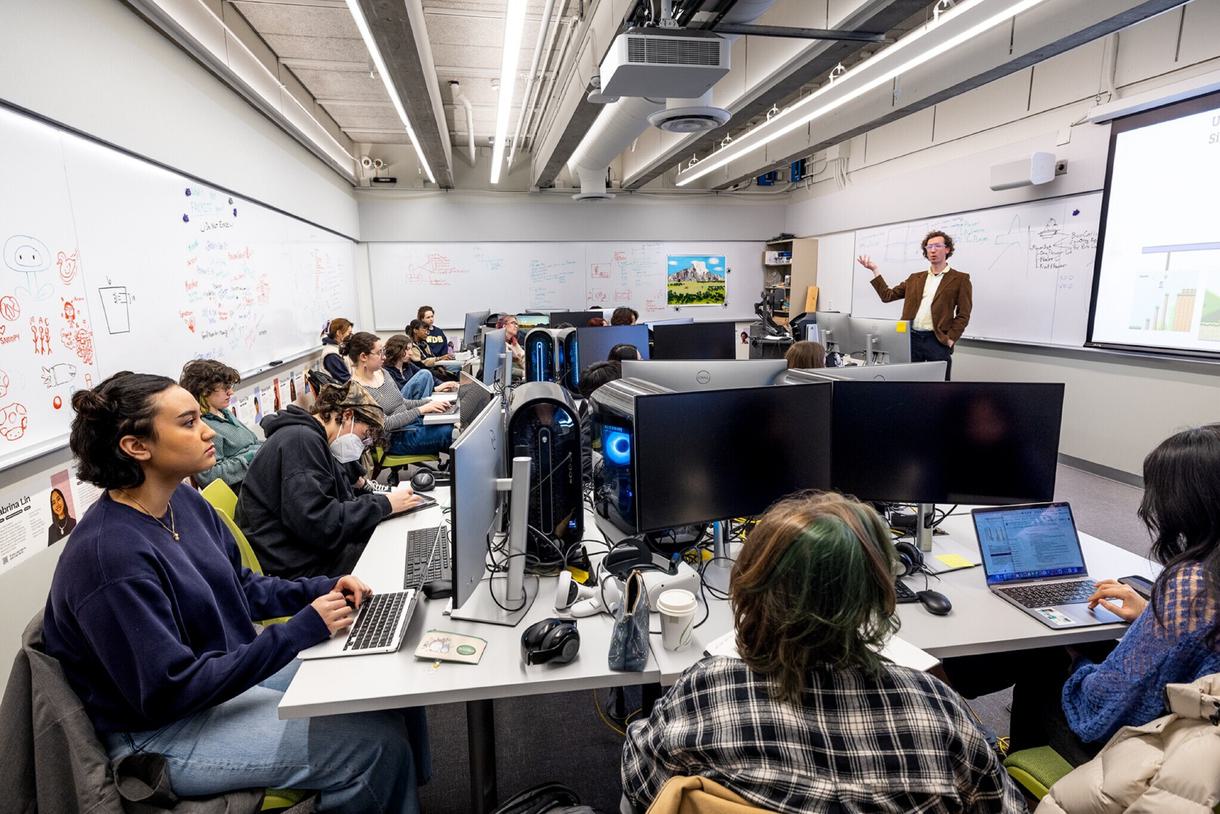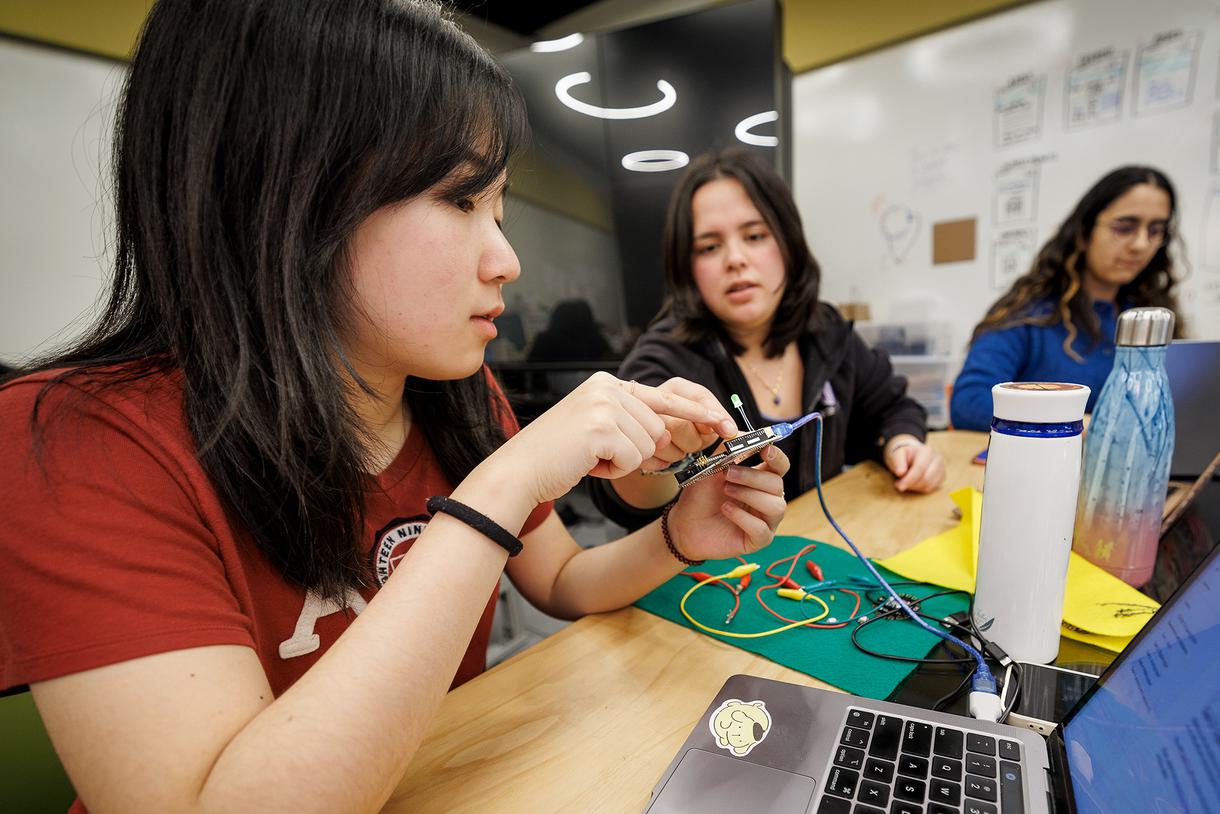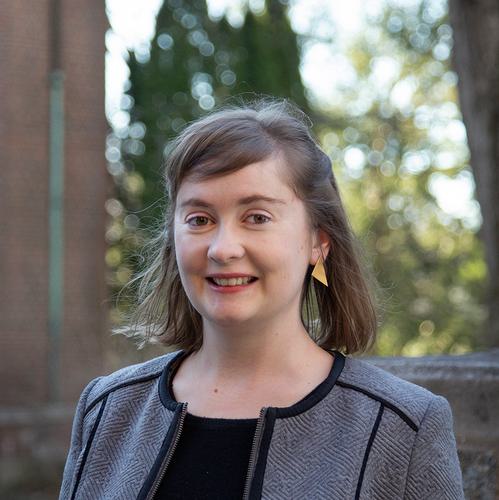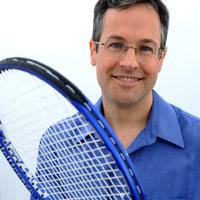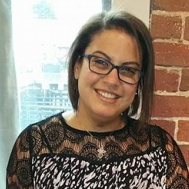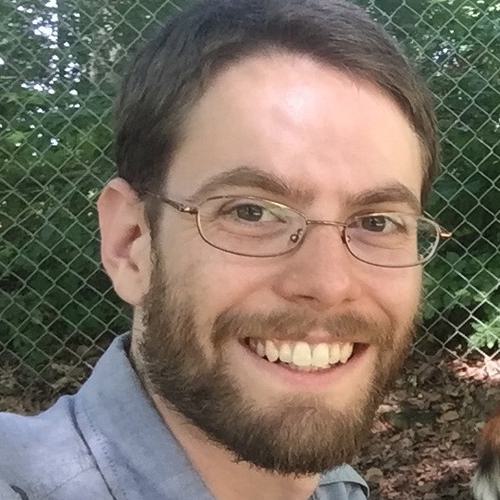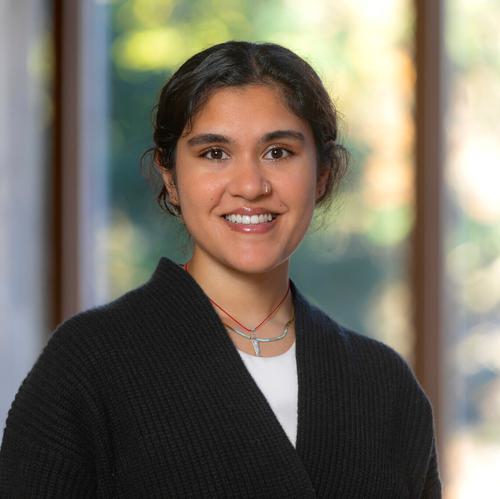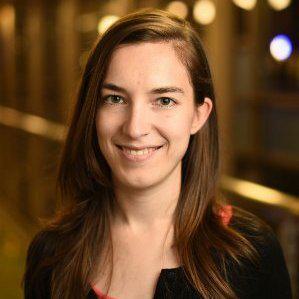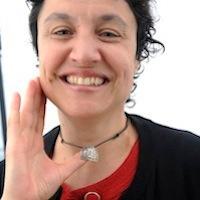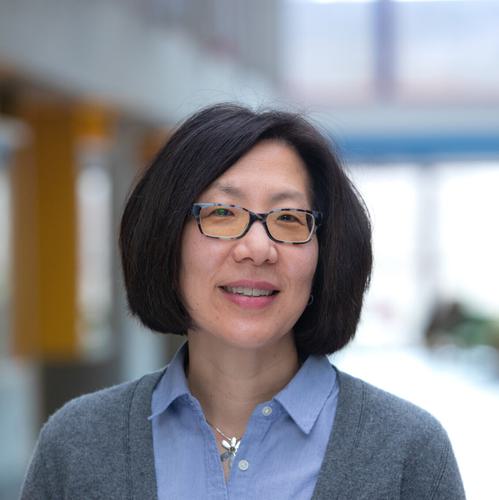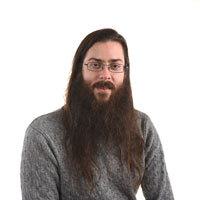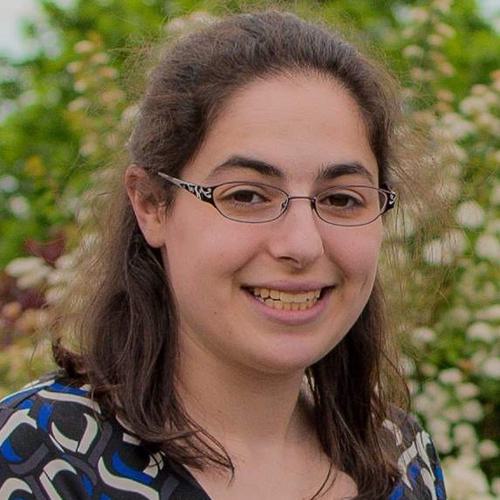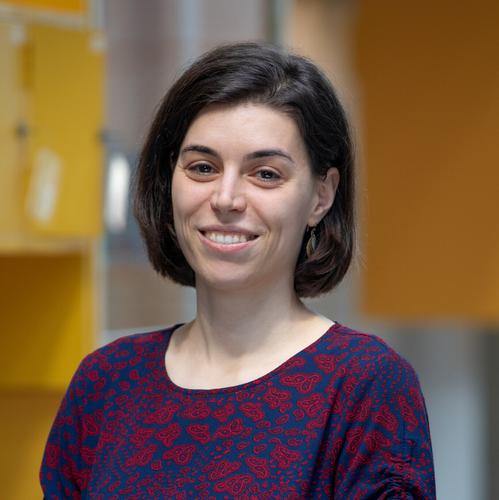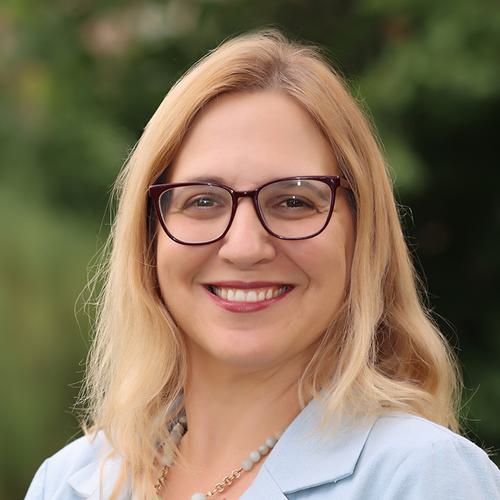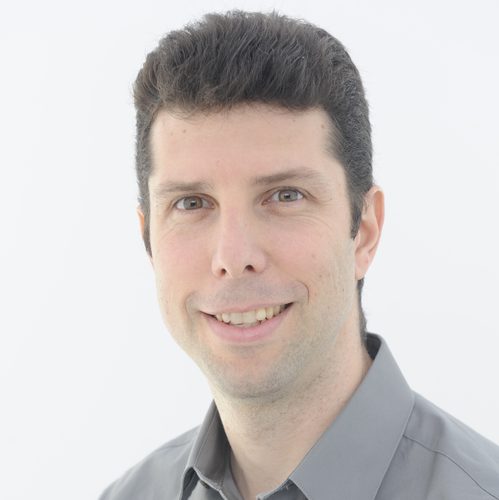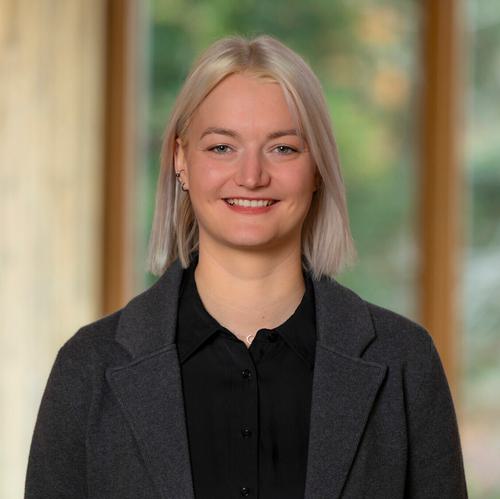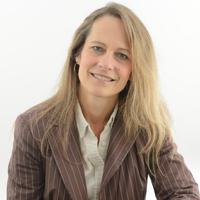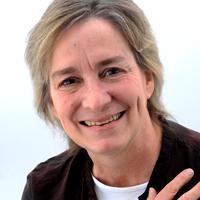Computer Science
Academic Department Introduction
Computer science encompasses the study of computation, information processing, and the design and development of computer systems and software. Our goal is to prepare students to lead in a world shaped by computation and data. The curriculum covers the “big ideas” of computer science, and includes a wide range of topics such as software design, computer architecture, theory of computation, algorithms, programming languages, machine learning, artificial intelligence, distributed computing, human-computer interaction, social computing, and playable media. We provide students with theoretical, technical, and ethical foundations so that they can design and build applications and tools that will have a positive impact on individuals and society.
Faculty research is frequently published in leading venues and supported by competitive grants from major scientific funding agencies such as the National Science Foundation and the National Institutes of Health. Students often work alongside faculty, engaging with and contributing to cutting-edge research through independent research, research assistant positions, or honors thesis work.
Learning goals
- Gain foundational knowledge in all areas of computer science, including its theoretical basis, software methodologies, computer hardware, and applications.
- Formulate, analyze, and solve computational problems.
- Apply computational thinking to new problems and adapt to new technologies.
- Communicate technical material, including in a team-based setting.
- Evaluate the impact of computer science on society and draw connections between computer science and other disciplines.
Programs of Study
Computer science major and minor
Students study computation, information processing, and the design and development of computer systems and software, with the goal of preparing to lead in a world shaped by computation and data.
Additional areas of study
Computer science is also a core requirement for media arts & sciences, data science, and cognitive & linguistics sciences courses.
Course highlights
Human-Computer Interaction
CS220
Human-Computer Interaction is one of the areas that have transformed the way we use computers in the last 30 years. Topics include methodology for designing and testing user interfaces, interaction styles (command line, menus, graphical user interfaces, virtual reality, tangible user interfaces), interaction techniques (including use of voice, gesture, eye movements), design guidelines, and user interface software tools. Students will design a user interface, program a prototype, and test the results for usability.
-
Designing for Accessibility
CS325
As technology increasingly integrates with our lives, how can we ensure that its design is inclusive of users' different abilities? CS 325 expands on the fundamentals of design and qualitative research to explore how technology can be made accessible for diverse users, with an emphasis on people with disabilities. In this course, we will read about and analyze approaches to inclusive technology, study how design intersects with disability justice, learn about the history of accessible and assistive technologies, understand how to create multimodal user experiences, learn accessible web programming, and test state-of-the-art tools. Students will also conduct a semester-long case study project in which they work in groups to identify accessibility issues on the Wellesley campus and work with the community to build appropriate technology solutions. -
Sociotechnical Dimensions of Computing in the Age of AI
CS110
The rapid advancement of artificial intelligence (AI) is transforming the way we work, interact, and make decisions. AI is integrated into applications and devices that are woven into our daily lives. How does AI work? What impact will AI have on individuals, communities, and our global society?This course aims to provide students with the knowledge and skills to become informed digital citizens in the age of AI, ready to navigate the digital landscape. Students will gain fundamental technical understanding of how computers, the Web, and AI work, and will study three programming languages: HTML5, CSS, and JavaScript. Students will also examine and discuss societal and ethical issues related to the Web and AI technologies, and consider responsible and future use of these technologies. (CS 110 and MAS 110 are cross-listed courses.)
Places and spaces
-

The Human Computer Interaction (HCI) Lab is an integrated teaching and research space with state-of-the-art technology, including a driving simulator, interactive multitouch surfaces, and virtual and augmented-reality head-mounted displays.
-
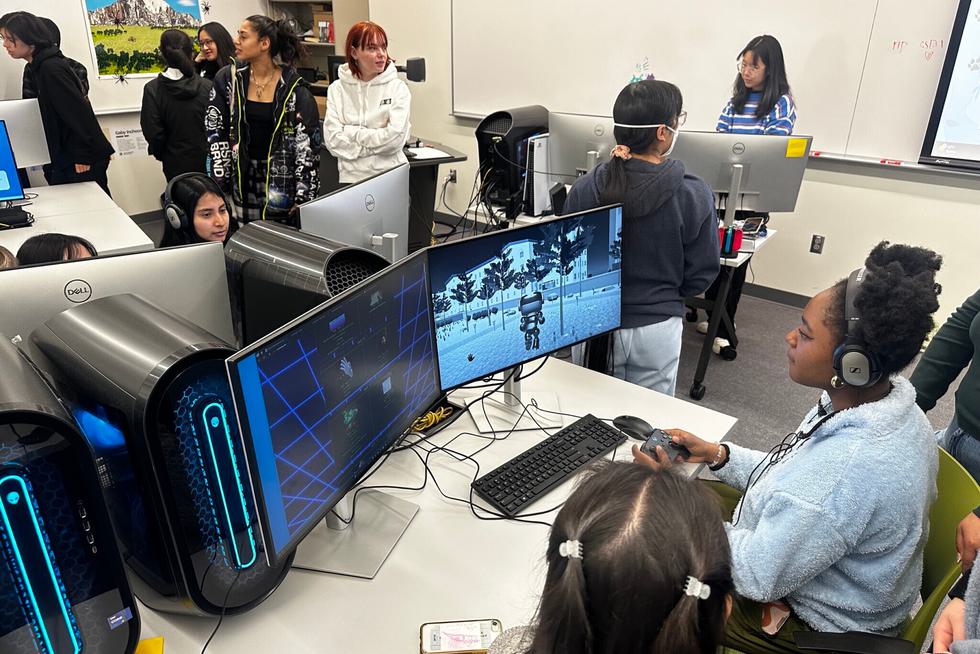
The Playable Media Lab houses 10 high-end computers and VR headsets to support development of interactive media, such as digital gaming and virtual reality. It also contains gaming consoles and a diverse collection of games.
-
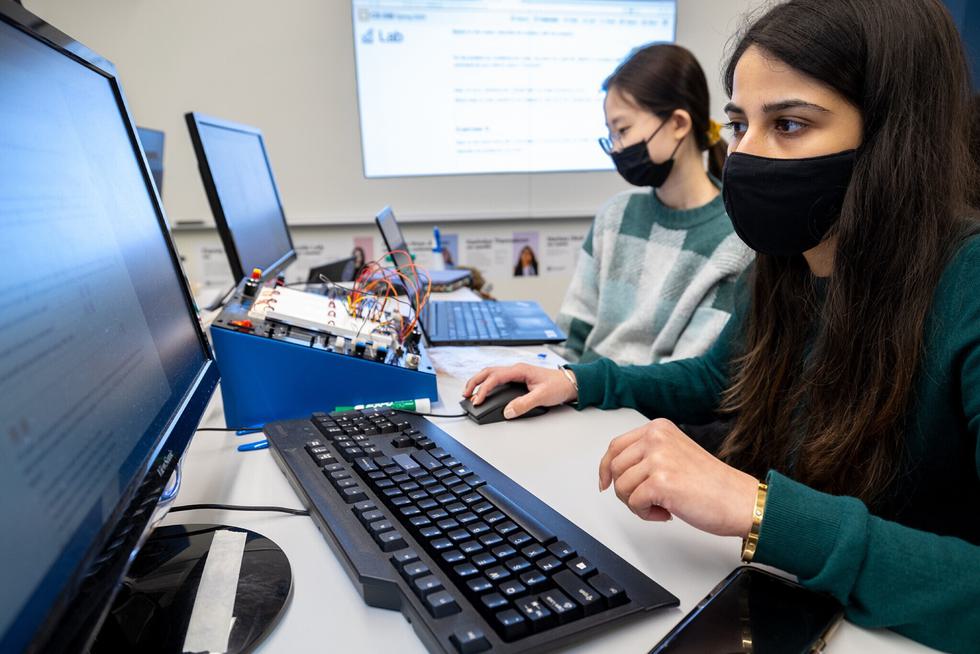
The CS Systems Lab has equipment for prototyping circuits and digital logic, along with 22 Linux/Windows workstations used for labs and assignments in CS240: Foundations of Computer Systems, and for computer systems research.
Research highlights
-
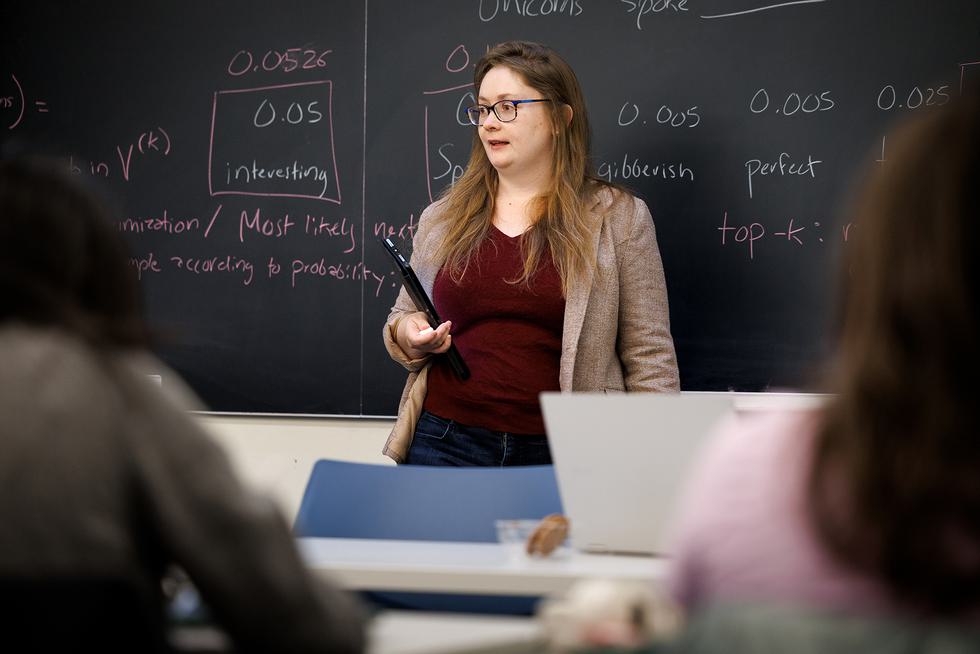
Professor Carolyn Anderson has worked with Kiara Meng Hui Liu ’23 and Xiaomeng Zhu ’23 to build a natural language processing pipeline for processing Chinese literary texts. They hope to facilitate computational study of Chinese literature by allowing easy extraction of character mentions, events, and quotations.
-
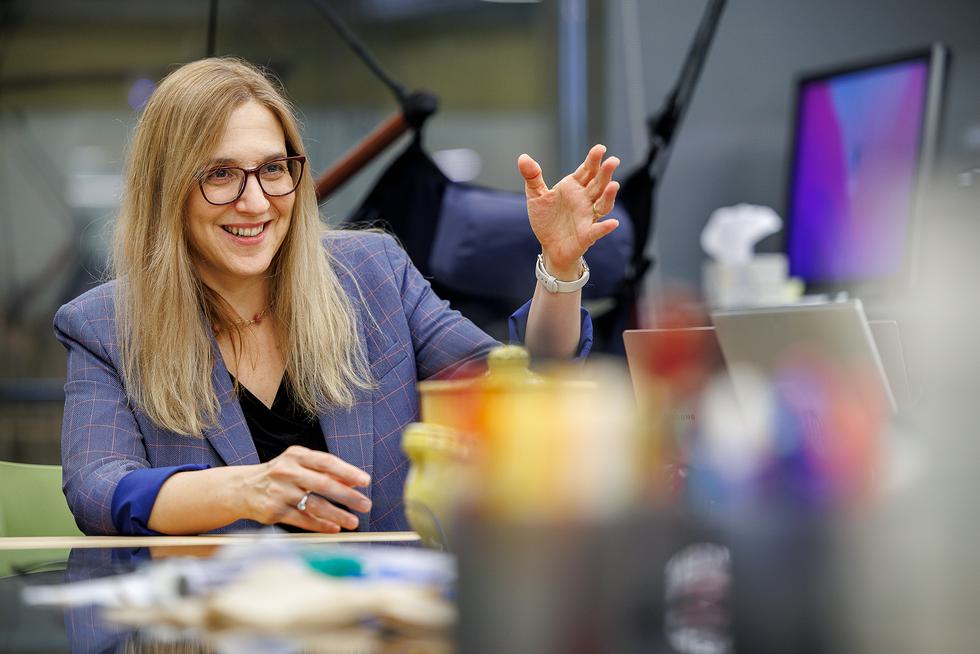
Professors Catherine Grevet Delcourt and Orit Shaer have worked with Toshali Goel ’23, Connie Gu ’24, and teaching fellow Angel Cooper ’22 on examining the use of generative language models in the user-centered design process. Their goal is to identify best practices for using AI tools for creative and inclusive user experience (UX) design processes. They presented a paper on their work in CHIWork 2023.
-
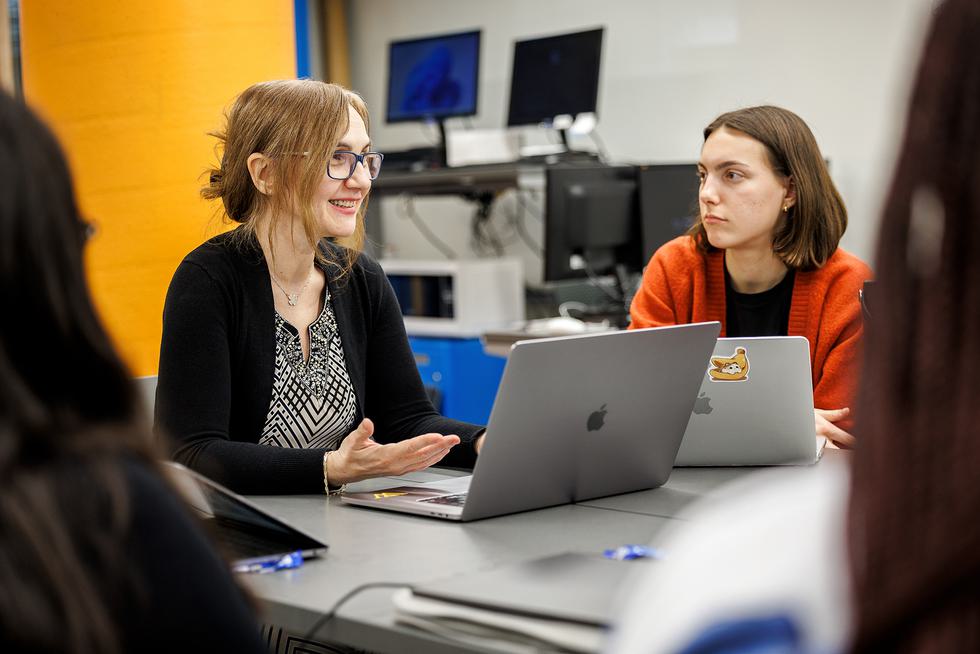
Professor Eni Mustafaraj has worked with Brooke Perrault ’24, Anya Wintner ’24 and Lan Dao ’23 to monitor Google search results with about 1,700 search phrases related to reproductive health and the U.S. Supreme Court ruling in Dobbs v. Jackson that overturned constitutional protection for abortion. They prepared a large dataset comprising 1.7 million search results pages and co-wrote a paper that was accepted at the 17th AAAI International Conference of Web and Social Media.
-
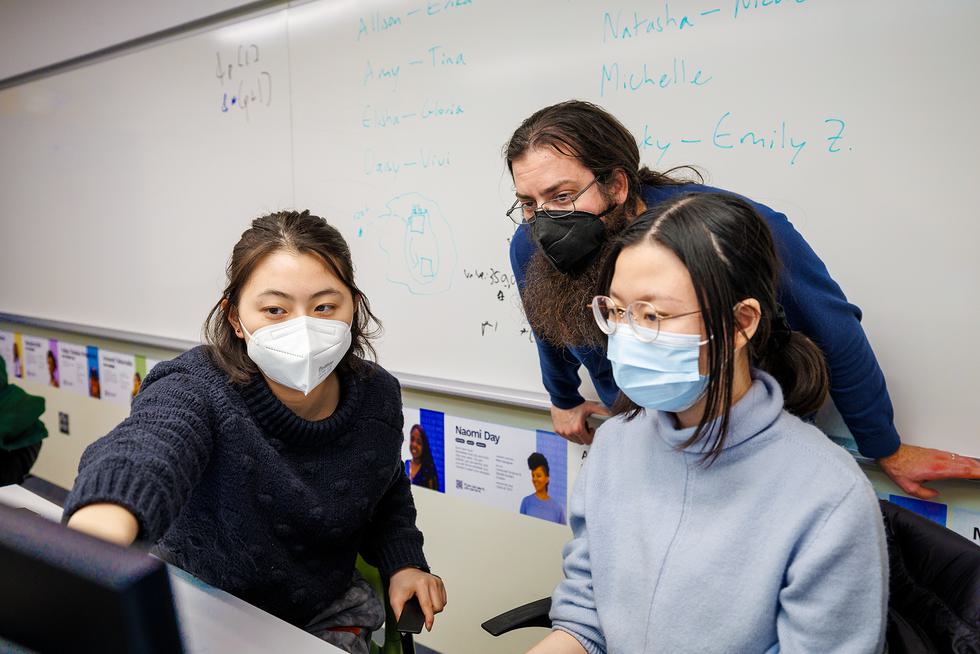
Associate Teaching Professor Peter Mawhorter has worked with Aizah Rao ’23, Kaitlyn Tsien ’24, Nissi Awosanya ’25, Rachel Suarez ’25, Jada Onwuta ’25, and Kitty Boakye ’26 to come up with a formal theory of exploration poetics for understanding players’ exploration process within games. They are building a graph-based tool for recording and analyzing gameplay decision traces.
Opportunities and community
Our department aspires to be a leader in broadening participation in computing. We value diversity, equity, and inclusion in our department and in the field itself. We understand that we need to continuously and actively engage in inclusive practices that build a community where all feel welcome and empowered to learn and thrive. Equitable access to education is imperative; accordingly, we recognize that we all need to be aware of our conscious and unconscious biases, as well as systemic biases within our institutions, and we must do our best to counteract and erode those biases.
-
Projects for inclusive excellence
Wellesley in Tech highlights Wellesley alums who are pursuing careers in technology and are eager to mentor our current students. Mind the Gap is a podcast that aims to empower underrepresented students pursuing computer science through interviews featuring alums in the technology field. We worked together as a department to craft and approve the CS community values statement.
-
MIT
Students can take classes at MIT and join MIT’s Undergraduate Research Opportunity Program (UROP) in a number of departments.
-
Student research
Computer science students have numerous research opportunities, including independent research during the academic year, honors theses, and the Wellesley Summer Research Program, which employs 20 students as full-time research assistants in a nine- or 10-week program.
Beyond Wellesley
Beyond Wellesley
Most of our computer science graduates work in the software and internet industries, a majority of them as engineers. Our grads also enroll in top graduate programs in computing.
Recent Employers






106 Central Street
Wellesley, MA 02481
